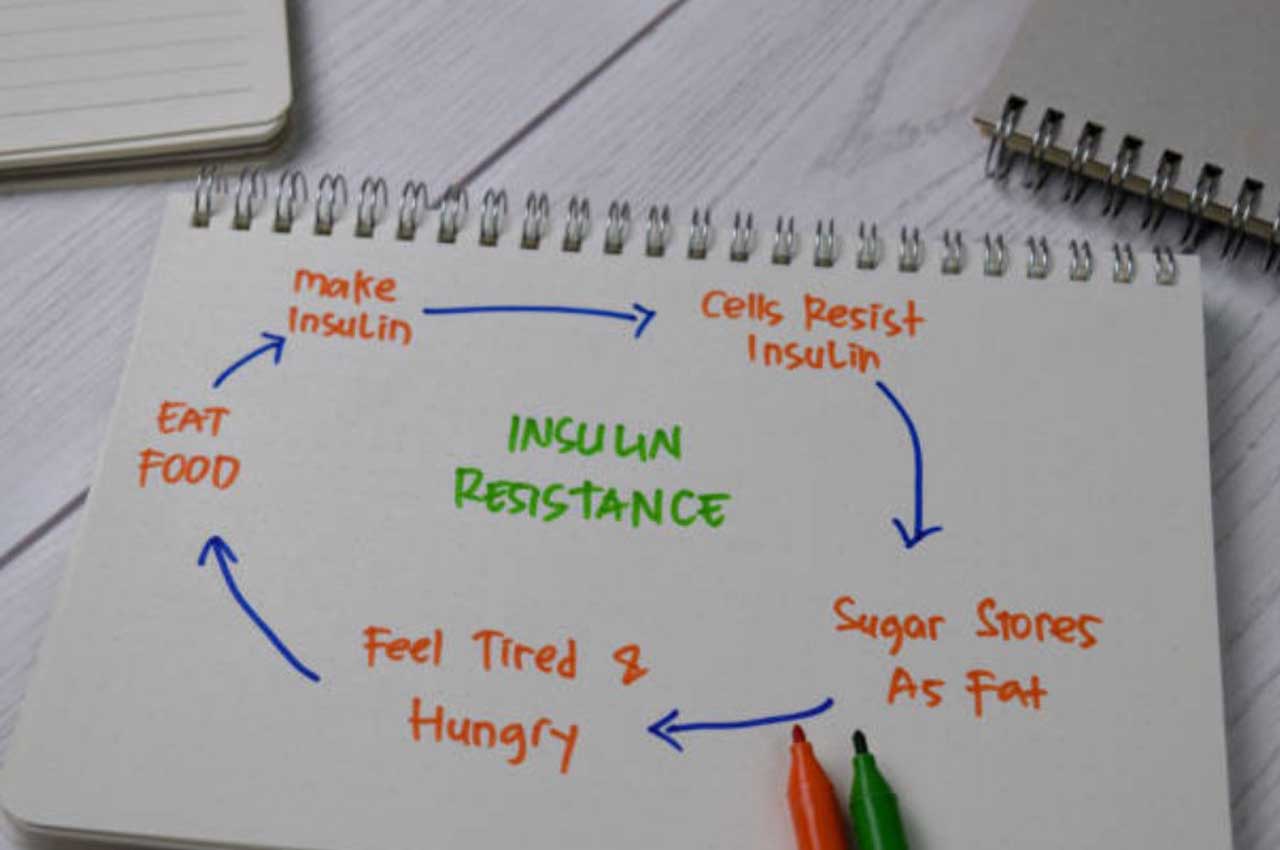
Fertility is an intricate combination of metabolism, hormones, and overall health, with even miniscule imbalances causing far-reaching effects. And among the many factors that leave a lasting impact on fertility, the one which is most crucial but often overlooked is insulin resistance.
While usually linked with metabolic disorders and diabetes, its impact on fertility has also lately been gaining a lot of attention from the medical research units.
In women, insulin resistance is known to affect the egg quality, reproductive hormones, and ovulation; while in men it can cause lowered testosterone levels and poor sperm function – reasons that can cause disruptions in fertility health.
To prevent or treat the issue, it is critical to first gather some understanding of how the two correlates. Something which we will be addressing in our article today.
What is Insulin?
It is a pancreas produced hormone, which plays a critical role in managing blood sugar levels. After every meal carbohydrates get broken down in glucose that then enters the bloodstream – in response, pancreases release insulin, allowing cells to absorb glucose and use it for energy later.
This entire process helps ensure that a stable blood sugar level is maintained and the body has enough energy in stock.
In addition to glucose metabolism, insulin also plays a role in protein synthesis, fat storage, and cellular growth, while helping tissues communicate and function efficiently. However, the moment cells become resistant to its effects, pancreases produce more insulin, setting off a reaction that disrupts the fertility system.
Ideal Insulin Levels
- Fasting Insulin: Aim for levels below 10 µU/mL, with the ideal range being 2-5 µU/mL.
- HbA1c: A blood test that measures average blood sugar levels over the past 2-3 months. Aim for an HbA1c under 6%.
- Fasting Glucose: A healthy fasting glucose level is between 70-90 mg/dL, but up to 110 mg/dL is also considered within normal limits.
The Link Between Insulin Resistance and Fertility
Insulin resistance carries a massive impact on reproductive health. When our cells become less responsive to insulin, our body compensates by producing more of it – an event called hyperinsulinemia, which triggers hormonal imbalance that affects ovulation, impairs sperm and egg quality, increases the probability of pregnancy-related complexities.
Insulin resistance impact on female fertility
In females, it is closely associated with polycystic ovary syndrome (PCOS), one of the most common causes of infertility. The excess insulin stimulates the ovaries to create more androgens, like testosterone, which interferes with normal ovulation.
Instead of releasing mature eggs every month, ovaries create several follicles which fail to ovulate causing irregular menstrual cycles.
To make the matter worse, higher insulin levels also reduce the production of sex hormone-binding globulin (SHBG), the protein that is needed for regulating testosterone and estrogen. Low SHBG levels release more testosterone in the body causing ovulatory dysfunction, acne, and excessive hair growth.
Beyond PCOS, insulin resistance can also affect the egg quality by increasing inflammation and oxidative stress in the ovarian environment. This poor egg quality lowers the probability of successful fertilization while increasing the chances of early pregnancy loss.
Insulin resistance impact on male fertility
Although gravely overlooked, insulin resistance can affect male fertility as well. The hormone imbalance caused by excessive insulin can lower the testosterone levels while increasing the amount of estrogen – both situations which are equally dire for sperm production. There are several studies that show men having insulin resistance have a very low sperm count, lowered sperm motility, and DNA damage – factors that make it extremely difficult to conceive naturally.
In men, insulin resistance also often causes obesity, which compounds the effects through the generation of a high amount of inflammatory cytokines causing a disruption in reproductive hormones. The result? Erectile dysfunction, low libido, and decreased reproductive function.
Preventive Measures for Insulin Resistance
Prevention of insulin resistance is one of the most efficient ways to protect both metabolism and reproductive health. Although genetics plays a major role when it comes to insulin resistance, there are several lifestyle related changes, such as – physical activity, diet, stress management, and sleep quality – that can have a significant impact on improving the conditions.
By taking these measuresand taking doctor prescribed fertility supplements, people can improve not just their fertility conditions but overall well-being.
1. Balanced diet to stabilize blood sugar levels
The everyday food we consume can directly impact insulin sensitivity and production. So by taking in food that prevents sugar spikes and lowers inflammation can better the insulin functioning over time.
Focus on low-glycemic index food
High GI food such as sugary cereal, processed food, and white bread lead to blood sugar spike causing higher insulin production. You should opt for low GI food such as:
- Legumes
- Whole grains
- Berries and citrus fruits
- Non-starchy vegetables.
Prioritize fiber-rich food
Fiber tends to slow down digestion while preventing fast sugar absorption, and lowering insulin spikes.
- Flaxseeds, psyllium husks, and chia seeds
- Nuts and seeds
- Vegetables with high fiber content.
Increase lean proteins and healthy fats
These are known to promote satiety and lower the insulin surges in the body. Some of the healthy options in this category can include:
- Olive oil, avocados, and coconut oil
- Fatty fishes
- Eggs, turkey, chicken, and plant-based proteins.
Limit sugary beverages and processed foods
- Avoid fruit juices, soda, and energy drinks as they can increase insulin resistance over time.
- Limit the consumption of refined carbohydrates such as pastries, packaged snacks, and white flour.
Consider meal timings and portions
- Consuming large meals with a lot of carbohydrates can cause an insulin spike, so the ideal approach should be to have balanced meals throughout the day.
- Avoid eating late-night since insulin sensitivity is at its lowest at night.
2. Engage in regular physical activities
Exercise is one of the most sustainable and effective ways to increase your insulin insensitivity levels, especially since muscles tend to absorb glucose without the need for insulin. Now typically, a combination of exercises can prove useful.
Strength training – 2-3 times a week
- Resistance bands, weight training, and bodyweight exercises can better the muscle mass, making cells a lot more insulin-sensitive.
- More muscle equals more storage for glucose with lesser insulin dependency.
Cardio exercises – 3-5 times a week
- Jogging, brisk walking, cycling, and swimming can lower the insulin levels.
- High-intensity Interval Training is known to enhance sensitivity a lot more efficiently than steady-state cardio exercises.
Daily movement
- Sitting for long hours can lead to higher insulin resistance, so it’s preferred to take hourly breaks for walking or stretching.
- Short walks after meals or standing desks are known to help a lot when it comes to managing insulin levels.
3. Managing stress to lower cortisol levels
Chronic stress tends to increase cortisol levels in the body which makes cells a lot less responsive towards insulin, making stress management critical for metabolic balance.
Practice mindfulness
- Daily mindfulness and meditation activities can lower stress levels while improving hormonal balance.
- Guided breathing approaches like 4-7-8 technique can slow down and regulate the nervous system.
Engage in relaxing activities
- Light stretching, walking, tai-chi, etc can help lower your cortisol levels.
- Spending time gardening or in outdoor activities can give stress relief.
Limit consumptions of stimulants
- Excessive alcohol and caffeine tend to increase the cortisol levels, making insulin resistance worse.
- Consume herbal teas such as ashwagandha, chamomile, or green tea for a natural stress relief.
4. Prioritize quality sleep
Lack of proper sleep also greatly disrupts metabolic functions such as hormone levels, glucose metabolism, and appetite regulation, which lead to increased insulin resistance. Here are some ways to solve that.
Have a consistent sleep schedule
- Waking up and sleeping at the same time can help improve your circadian rhythms.
- Aim for at least 7-9 hours of uninterrupted sleep every night.
Improve sleep quality
- Lower screen time before bed
- Keep the bedroom dark and in optimal temperature for best rest.
- Avoid caffeine or heavy meals right before bedtime.
- Seek medical intervention to cure issues like sleep apnea.
5. Consider supplements
There are certain supplements that help people who either have or at risk of insulin resistance. Although it is strongly advised that you consume these supplements only after consulting with your doctors, here are some key elements of those supplements:
- Inositol – helps better ovarian function in women suffering from PCOS.
- Magnesium – plays an important role in lowering inflammation and bettering glucose metabolism.
- Berberine – a natural compound known to be extremely efficient in lowering blood sugar.
- Omega 3 Fatty Acids – help lower inflammation and aid hormonal balance.
Insulin resistance plays a crucial role in fertility, ovulation strength, egg quality, and sperm count. Any ups and downs in it, while a matter of concern can be managed effectively with timely medical intervention. We hope that our article helped you with the knowledge to take the first steps towards your fertility journey and well-being.







